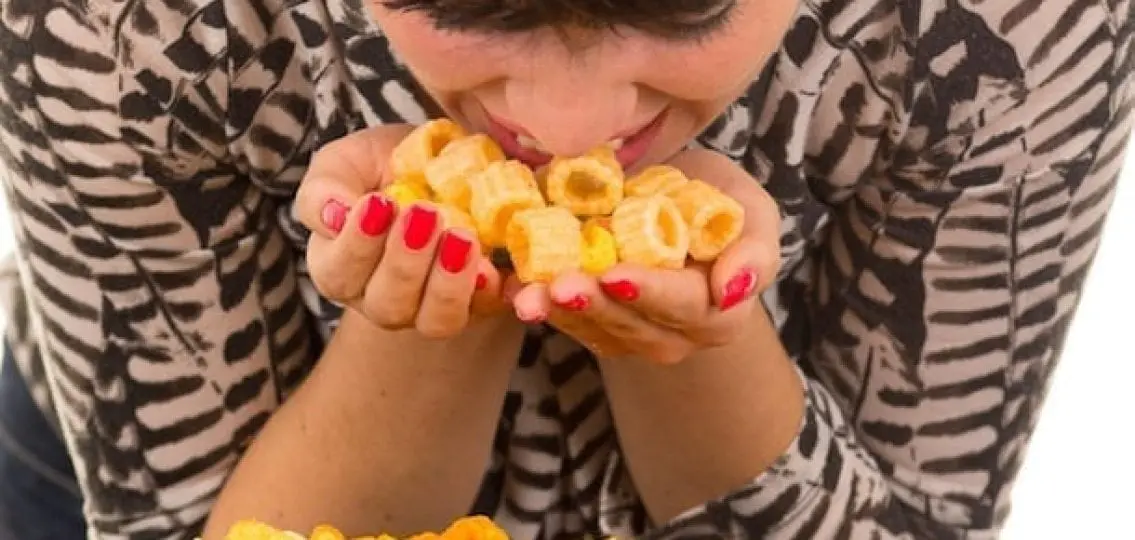Dear Your Teen:
My 16-year-old daughter eats too much. She doesn’t stop snacking. While I can think of two answers, saying no or buying healthy snacks, I have reasons why neither works. First, we have an open kitchen and I don’t want to police her food. And she would resent any comments and interpret them to be criticism of her weight. Second, I have other kids who can manage the eating of snack foods. What can I do?

ANSWER | Kitty Finklea, RD
Your instinct is right—it’s not helpful to tell your daughter that she eats too much. It’s not a good idea to police her food choices. This creates negative feelings around food and weight. Plus, at age 16, she is pretty much in control of her food. It is difficult to watch your teenager make poor choices that you feel are hindering her weight and health. You may feel helpless, but there are strategies to improve the situation.
7 Ways to Promote Better Eating Habits
1. Focus on health, not weight
Talk to your teen about healthy food habits; don’t talk about weight. Is she concerned about weight or does she feel out of control about food? If she brings it up, this is a perfect opportunity to talk about it. If she is not concerned, it is okay for you to voice your concerns about her health without focusing on weight. Pick a time with just the two of you when both of you are calm. Let her know you are there to help—not judge or nag.
2. Focus on family health
While you may have an open kitchen policy, eating a lot of empty calories isn’t good for anyone, even thin people. So limit junk like sweets, chips, and other highly processed foods. Make whole grains, fresh fruits, veggies and lean protein easy to grab for a quick snack.
3. Be a role model
Our kids model our behaviors. Focus on eating healthy, regular exercise and managing stress. Help ALL your kids do the same. Banish fat talk. When parents are physically and emotionally healthy, kids tend to follow suit.
4. Shop together
Teenagers tend to make better choices when involved in food purchasing. Both protein and fiber keeps you full longer. Find products with at least 3-5 grams of fiber and/or 5-10 grams of protein.
5. Develop kitchen savvy
Teens need to know how to prepare a minimum of 10-20 healthy meals and snacks before college. This develops food skills and investment in nutrition. She can prepare her own snack instead of hitting the pantry for something processed.
6. Discern between mouth and stomach hunger
Sometimes excess snacking is a coping mechanism for emotions like boredom, grief, or stress. Help her explore her feelings and find other strategies to cope – exercise, music, hot baths, talking it out, etc.
7. Have patience
This can be the most challenging part but remember, change takes time and set backs are normal. If mostly healthy foods are around and the family focus remains on health and not weight, her excess snacking should improve. Ultimately, she has to want to change on her own. You can’t do it for her, but you can create a healthier environment and be a good role model.





